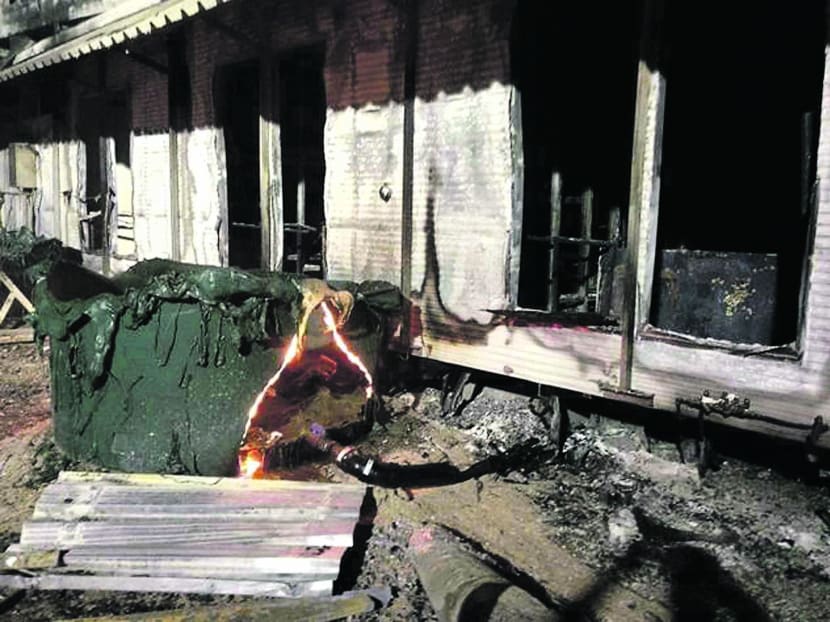Spike in refugees makes tougher asylum policy ‘unavoidable’
SYDNEY — Australia’s tough new response in refusing entry to refugees arriving by boat and sending them to neighbouring Papua New Guinea is necessary, as the number of asylum-seekers making the journey could rise to 50,000 a year, the government said yesterday.

Destroyed accommodation blocks of an Australian-run detention centre in the Pacific island nation of Naru, following a riot by 125 asylum-seekers. Photo: AP
SYDNEY — Australia’s tough new response in refusing entry to refugees arriving by boat and sending them to neighbouring Papua New Guinea is necessary, as the number of asylum-seekers making the journey could rise to 50,000 a year, the government said yesterday.
“The spike in the numbers of people being brought by people smugglers makes it unavoidable,” Foreign Minister Bob Carr told Sky News. “You have got 3,000 people arriving a month. The annual rate would be something like 40,000 to 50,000 a year if it continues at this level. If it continues at this level — the Prime Minister was very persuaded by this — it could rise further as people smugglers really close in to make a financial killing.”
The number of arrivals for asylum-seekers has spiked from a mere 161 in 2008 to 11,599 in just the first three quarters of 2012-13, the latest period for which official statistics have been published. The majority of arrivals are from Afghanistan, Iran and Sri Lanka.
Home Affairs Minister Jason Clare said in a statement yesterday that the police will pay as much as A$200,000 (S$232,800) for information leading to the conviction of people smugglers behind the boats. The criminal groups stretch from Australia to nations including Indonesia, Malaysia, Pakistan, Iran and Iraq, he said.
“These people are peddling in misery and death. We need to shut this market down. That’s why we are putting a bounty on their heads,” Mr Clare said. He added that the new policy, unveiled by Prime Minister Kevin Rudd on Friday, was brutally honest in conveying the message that asylum-seekers could pay a people smuggler A$10,000 and face great peril at sea, but they still would not be settled in Australia.
Mr Rudd has made solving the asylum-seeker problem a priority before elections that must be held by the end of November.
The Greens party, a partner in Mr Rudd’s minority government, has described the plan as cruel. Mr Scott Morrison, the Australian opposition’s immigration spokesman, told Channel Ten yesterday: “They haven’t even worked out how they are going to pay for it, let alone what the procedures are going to be for resettling in Papua New Guinea.”
Meanwhile, 125 asylum-seekers were in police custody on the Pacific island nation of Nauru — a processing centre for Australia’s refugees — after a riot that destroyed most of an Australian-run detention centre there, an Immigration Department spokeswoman said yesterday, adding that fire and damage from the riot had cost an estimated A$60 million. Only the dining and recreation buildings survived the blaze.
Australia is holding 545 asylum-seekers on Nauru while their refugee claims are being assessed. The other 420 had been transferred to a second detention camp which was under construction, the spokeswoman said. They are now living in tents. Eight asylum-seekers received hospital treatment.
Australia pays Nauru and Papua New Guinea to hold asylum-seekers who attempt to reach the Australian shore by boat. Their asylum claims are assessed at the island detention camps. AGENCIES






